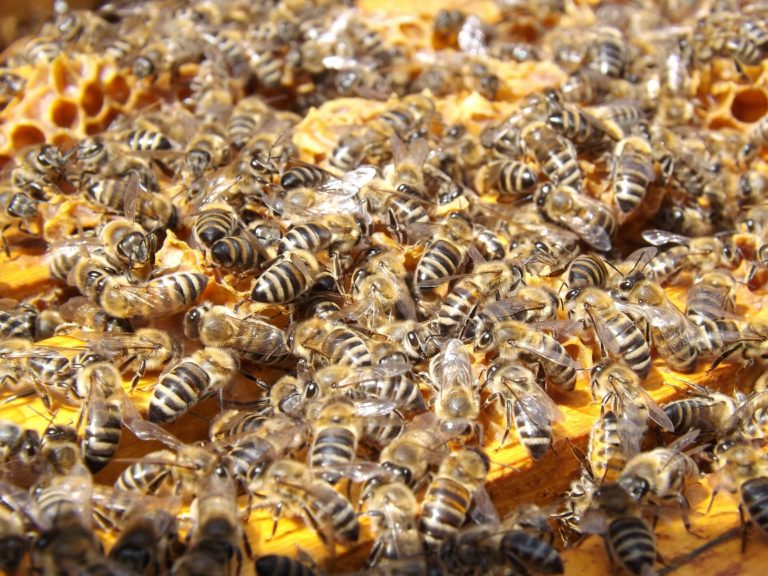10 Food-Related Idioms
In previous articles, we have discussed how to use verbs to talk about food and cooking, but you can also use food-related idioms to express ideas about a wide range of topics! From describing relationships with others to explaining specific actions, these food idioms can help elevate your English skills and convey nuanced concepts in a more precise way. It will also help your speech flow more smoothly and feel more natural when engaging with native speakers.
So let’s take a look at twelve of the most common food idioms in English and how to use them!
Two Peas in a Pod
When to use it: Describing two people who spend a lot of time together and/or whose personalities completely complement each other.
Example: Tom and Jill have been inseparable for forty years. They are like two peas in a pod!
Tip: Since this idiom functions as a simile, you’ll want to use the word like to connect the verb with the idiom.
Not My Cup of Tea
When to use it: Sharing something that you do not like or enjoy. This can be any noun or verb.
Examples: Superhero movies are not my cup of tea.
Running is not my cup of tea.
Tip: You can also use this in the positive sense by removing not.
Example: Writing is my cup of tea.
Bad Apple/Bad Egg/Good Egg
(Go here to learn how to use egg someone on)
When to use it: Describing a person who causes trouble or is poorly behaved.
Example: You can’t say all children are problems just because of a few bad apples.
Tip: You can use the idiom bad egg to intensify the meaning of bad apple to describe someone who is inherently bad or behaves extremely poorly. Use good egg for a positive meaning.
Examples: The judge declared there was no hope for the criminal. He was simply a bad egg.
I love your new boyfriend! He seems like a good egg.
Cool as a Cucumber
When to use it: Talking about someone who is very calm.
Example: Judy stayed cool as a cucumber during her exam.
An Apple a Day Keeps the Doctor Away.
(Here are some more apple-related idioms to enhance your vocabulary!)
When to use it: Stating that eating a healthy diet will decrease health problems.
Example: I need to stop eating foods high in added sugar and eat fruit instead; an apple a day keeps the doctor away!
Spill the Beans
When to use it: Sharing information that was supposed to be a secret.
Example: Duke accidentally spilled the beans about Ziggy’s surprise birthday party.
Tip: Don’t forget to conjugate verbs included in idioms according to the tense of your sentence!
Couch potato
When to use it: Describing someone who is very lazy and idle.
Example: I feel like such a couch potato this week, but I haven’t been feeling well.
Tip: Sometimes this idiom means that a person literally spends too much time sitting on the couch watching a lot of TV.
Bigger Fish to Fry
When to use it: Telling someone that you have more important matters to deal with or think about. You can also use it to talk about targeting someone of greater value to you for a specific reason.
Examples: I’m not worried about finishing that report today. I have bigger fish to fry.
Don’t spend your time soliciting donations from him. He can’t donate a lot, and there are bigger fish to fry!
Tip: Be careful when you use this idiom! It can have a negative connotation if used to dismiss someone else’s concern. It’s almost like saying, “I don’t care about that issue right now, I have more important things to worry about!”
Bring Home the Bacon
When to use it: Talking about making money to pay for bills, food, housing, and everything a person needs to sustain a living.
Example: My dad said he doesn’t feel like working today, but he has to bring home the bacon somehow!
Heard it through the grapevine
When to use it: Discussing information received through someone else. It is similar to the concept of gossip or word-of-mouth.
Example: I heard through the grapevine that you are having a baby in November!
Tip: A great way to practice idioms is by listening to the ways they are used in popular media! There is a popular song in the United States called “I Heard It Through The Grapevine.” Give it a listen, and see how the phrase fits into the context of the song!
All of these idioms are used on a regular basis by English speakers in everyday conversation and popular media. See if you can catch anyone using these phrases next time you’re having a conversation, listening to a podcast, watching a TV show, etc. When you do hear the phrase, write it down in the context it was used! Read and repeat the sentence to yourself, and then try to create your own examples of these idioms!
For further practice with all categories of idioms and phrasal verbs, click here







